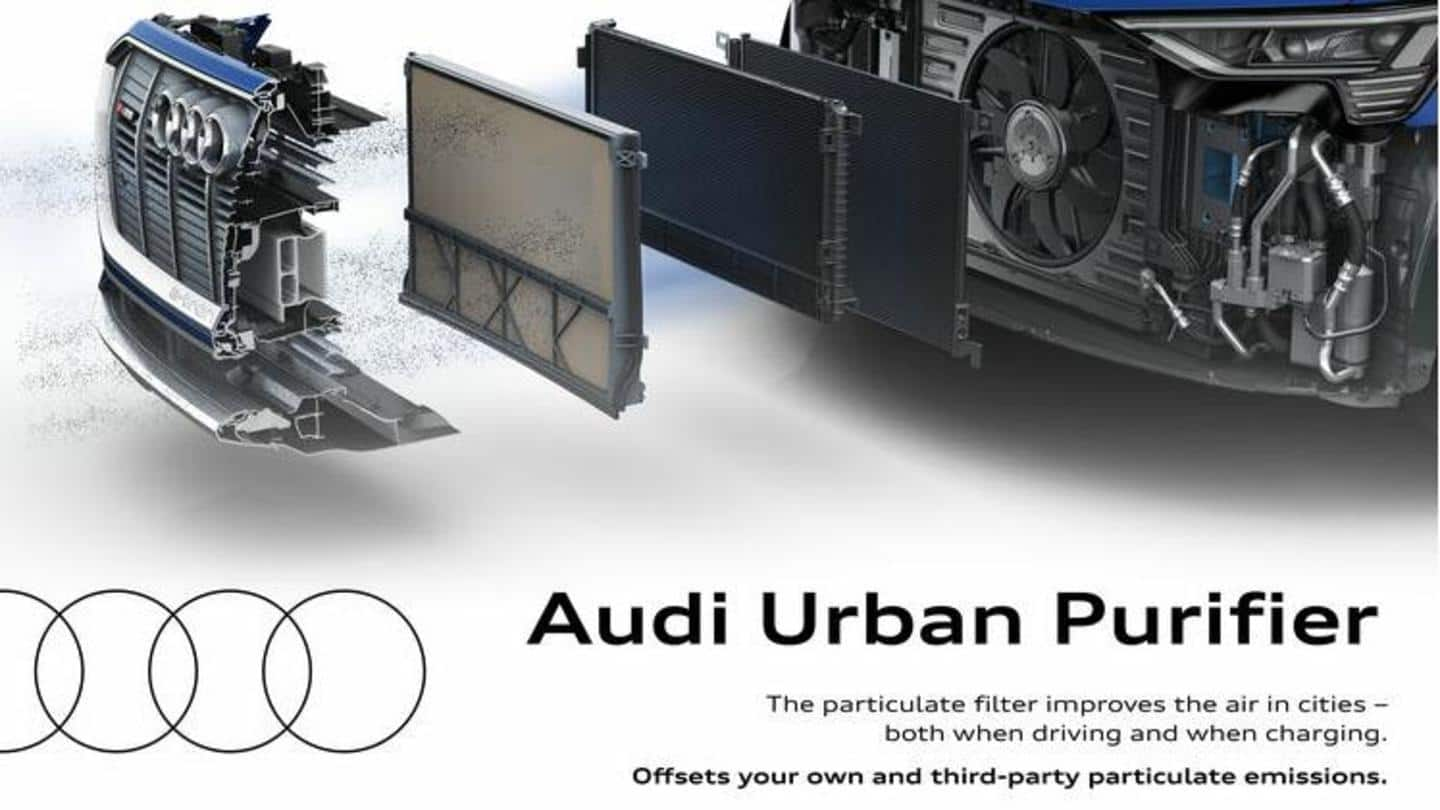
Future Audi EVs will clean city air while driving
What's the story
Audi, in partnership with MANN+HUMMEL, has developed an air filter for electric cars in order to reduce pollution in cities.
The filter will be placed at the front end of the EV to capture particulate matter from surrounding areas both while driving and charging.
The German manufacturer recently showcased this creative technology at the Greentech Festival in London.
Context
Why does this story matter?
Audi's concept of adding an air filter to its cars is not new. Last year, Heatherwick Studio's Airo EV presented a similar idea thanks to its HEPA air filter system.
Considering the alarming decline in air quality across major cities, the implementation of air filters will be more relevant in urban areas, where the pollution is higher, compared to the relatively cleaner rural locations.
Details
The filter will only require replacements during routine service
Audi has adopted a sustainable approach during manufacturing and seeks to achieve net carbon neutral production.
This project, which is currently in its pilot phase, involves collaboration with the leading filtration company MANN+HUMMEL. Moving on to the composition of the filter element, it is predominantly composed of recycled material.
Moreover, the filter will only have to be replaced during the customary service period.
Operation
How does the filter work?
The filter is placed in the path of the vehicle's existing airflow i.e. in front of the radiator.
While driving, the passive filtration takes place and active filtration will happen when the vehicle is charging.
A switchable cooling air inlet modulates the filter. Its working mechanism is analogous to that of a vacuum cleaner—fine dust particles are permanently trapped without impeding air circulation.
Testing
Does the filter have an effect on the EV's performance?
Endurance tests ranging over 50,000km revealed that the filters did not produce a negative effect on the vehicle's performance.
Instead, the filtering system proved to be highly efficient. When tested at Stuttgart, a highly polluted German city, the entirety of Audi e-tron particles were captured.
Audi intends to utilize existing sensors such as weather stations to reveal the operational status of the filter.